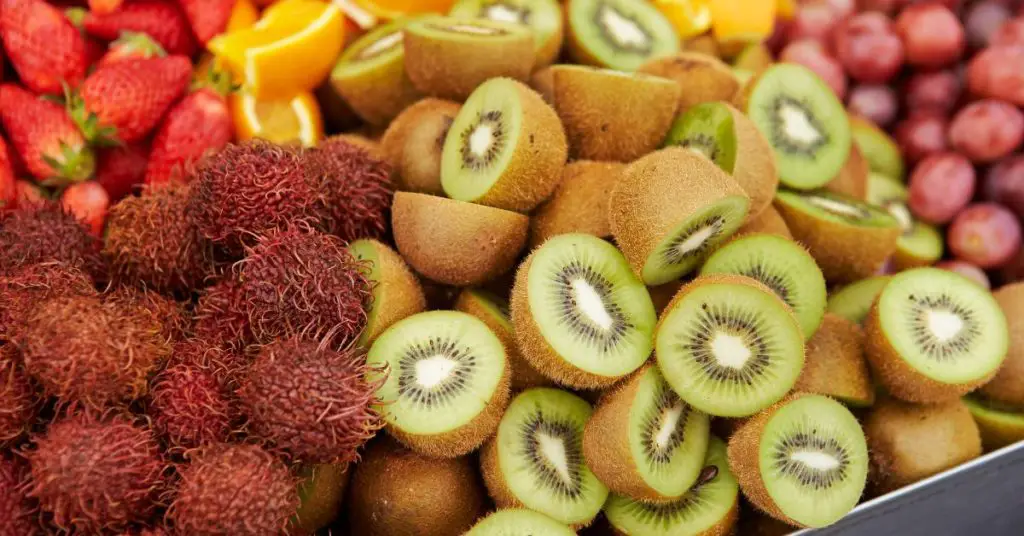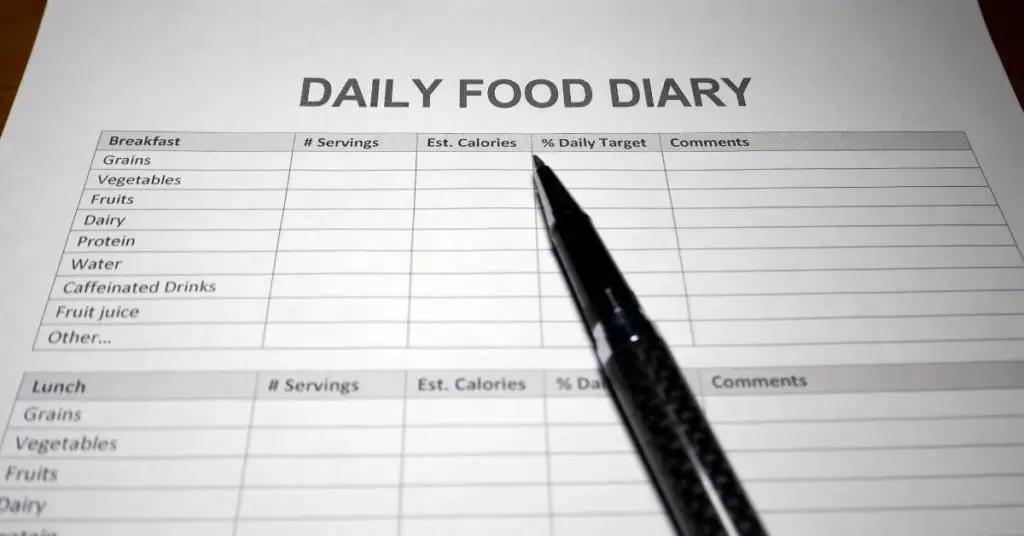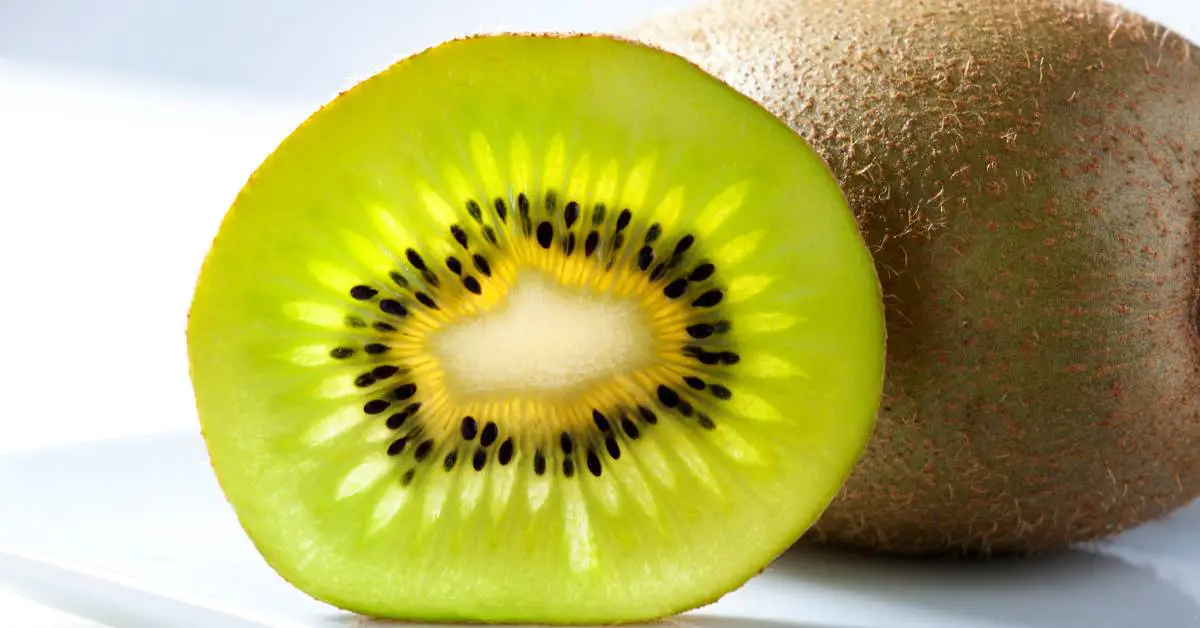Dashboard
Is kiwi low histamine? If your doctor has diagnosed you with histamine intolerance or if you believe you have this condition, you may wonder if kiwi is a safe fruit to eat. Good question!
Avoiding high-histamine foods is a way to lower your body’s histamine burden and prevent histamine intolerance symptoms. In fact, a low histamine diet is the best treatment for histamine intolerance.
Histamine is a chemical that mast cells, a type of immune cells, produce. For example, when you encounter something you’re allergic to, mas cells release histamine to recruit more immune cells.
Therefore, histamine triggers allergic reactions in some people, such as sneezing, itching, hives, or asthma. (2)
Some foods also contain histamine or can trigger the release of histamine from your immune cells. With histamine intolerance, you can’t break histamine down as quickly and it builds up and causes allergy-like symptoms.
A low histamine diet can help you avoid these symptoms by limiting the intake of histamine-rich or histamine-liberating foods.
The Histamine Content of Kiwifruit
If you browse the internet, you’ll sometimes see reference to kiwi as being a histamine liberator, meaning it can stimulate the release of histamine from mast cells, a type of histamine-producing immune cell.
There’s something called a leukocyte histamine release test (LHRT) that measures histamine release in a lab setting in response to an allergen. (1) To do this test, they add an allergen to a group of immune cells and see how much histamine the cells release.
If an individual is sensitive to the allergen, their immune cells will release histamine in proportion to how sensitive they are to the allergen.
In this case, when they added kiwi to immune cells, they released histamine. (1) This may be the basis by which sources call kiwi a histamine liberator.
However, this doesn’t mean that everyone with histamine intolerance liberates histamine from their immune cells when they eat kiwifruit.
If you’re allergic to kiwi and you eat even a small amount of it, your mast cells will release histamine, as you’re allergic to histamine. It’s not uncommon for people to have an allergy to kiwifruit, particularly oral allergy syndrome (3), a condition where you experience an itchy mouth and throat when you eat kiwi.
So, it’s unclear whether kiwi is a histamine liberator in the absence of an allergy to kiwi. But it does mean you should be cautious if you consume kiwi and monitor your symptoms closely.
Always test how your body responds by consuming a small amount of any food in question and track your symptoms closely.

Is Kiwi Low Histamine?
Beyond the question of whether kiwi is a histamine liberator is the question of whether fresh kiwi naturally contains histamine.
There’s little evidence that fresh kiwi is high in histamine or contains significant quantities of other biogenic amines(4)
Histamine is one type of biogenic amine that people can be sensitive to, but there are others.
As one study concluded: “The levels of biogenic amines and polyamines found in kiwi, papaya, strawberry, pineapple, and plum are too low to justify their exclusion.”(5) However, we know that strawberries are a histamine liberator and there are concerns that kiwi may be too.
The age of a fruit, like kiwi, can affect its histamine content. As fruits sit around, they are exposed to bacteria, and some of these bacteria produce histamine as part of their digestion process.
For individuals already dealing with an overproduction of histamine, this can trigger symptoms. That’s why it’s important to eat fresh low-histamine fruits and vegetables and not let them sit around, so their bacteria content increases.
Determine Your Individual Tolerance to Kiwi
The best way to find out if kiwi is low histamine for you is to test your individual tolerance. You can do this by eliminating kiwi and other high histamine or histamine-liberating foods from your diet for a few weeks, and then reintroduce them one by one, while monitoring your symptoms. Here’s how to do that:
- Elimination Phase: Begin by excluding kiwi from your diet, along with other foods known to be high in histamine or those that can liberate histamine. Maintain this elimination phase for a few weeks to allow your body to reset and minimize any potential histamine-related symptoms.
- Reintroduction Process: After the elimination period, gradually reintroduce kiwi back into your diet, one food at a time. Start with a small portion and closely monitor your body’s reaction. Keep a detailed record of any symptoms that arise and their severity. This systematic approach helps you identify the specific impact of kiwi on your histamine levels.
- Symptom Monitoring: During the reintroduction phase, remain vigilant and observe any changes in your body. Pay attention to symptoms such as headaches, skin rashes, nasal congestion, digestive disturbances, or any other signs of histamine intolerance. Note the timing and intensity of these symptoms to help establish a correlation between kiwi consumption and histamine-related reactions.
- Individual Assessment: Based on your observations, determine your individual tolerance for kiwi. If consuming kiwi worsens your symptoms, avoid it in your diet. But if you experience minimal or no worsening of histamine intolerance symptoms, you might be able to enjoy kiwi, in moderation, as part of a balanced diet.

Beyond Histamine: The Pros and Cons of Eating Kiwi
Although kiwi a beautiful fruit to look at and tastes delightful, it’s also a high-oxalate fruit due to its high oxalate content. Why is this a concern? Oxalate can bind to minerals and are linked to calcium oxalate kidney stones.
Most doctors who treat kidney stones recommend that kidney stone sufferers eat a low-oxalate diet for this reason. The oxalate in oxalate-rich foods can also bind to minerals in your gut and reduce the quantity your body absorbs.
So, if you have a history of calcium oxalate kidney stones, you’ll want to limit the amount of kiwi in your diet or avoid it entirely.
On the plus side, kiwi is a delicious and nutritious fruit and one of the best sources of vitamin C, an antioxidant vitamin. It’s also an excellent source of fiber.
The vitamin C content may be beneficial if you have histamine intolerance but the possibility that kiwifruit is a histamine liberator raises concerns.
Kiwi contains other antioxidants, including a group of compounds called carotenoids, linked with a lower risk of cardiovascular disease. (7)
Be Cautious with Kiwi if You Have Histamine Intolerance
Is kiwi low histamine? Kiwi is naturally low in histamine but could be a histamine liberator. So, be cautious about adding large quantities to your diet.
References:
- Kiwifruit triggered histamine release [Units/volume] in Blood. (2023). Retrieved 29 May 2023, from https://loinc.org/7441-9/
- White MV. The role of histamine in allergic diseases. J Allergy Clin Immunol. 1990 Oct;86(4 Pt 2):599-605. doi: 10.1016/s0091-6749(05)80223-4. PMID: 1699987.
- Gall H, Kalveram KJ, Forck G, Sterry W. Kiwi fruit allergy: a new birch pollen-associated food allergy. J Allergy Clin Immunol. 1994 Jul;94(1):70-6. doi: 10.1016/0091-6749(94)90073-6. PMID: 8027500.
- Wójcik W, Łukasiewicz M, Puppel K. Biogenic amines: formation, action and toxicity – a review. J Sci Food Agric. 2021 May;101(7):2634-2640. doi: 10.1002/jsfa.10928. Epub 2020 Dec 12. PMID: 33159318. https://pubmed.ncbi.nlm.nih.gov/33159318/
- Sánchez-Pérez, S.; Comas-Basté, O.; Rabell-González, J.; Veciana-Nogués, M.T.; Latorre-Moratalla, M.L.; Vidal-Carou, M.C. Biogenic Amines in Plant-Origin Foods: Are they Frequently Underestimated in Low-Histamine Diets? Foods 2018, 7, 205. https://doi.org/10.3390/foods7120205.
- “Kiwi Benefits: Heart Health, Digestion, and More.” 31 Jan. 2022, https://www.healthline.com/nutrition/kiwi-benefits.
- Aune D, Keum N, Giovannucci E, Fadnes LT, Boffetta P, Greenwood DC, Tonstad S, Vatten LJ, Riboli E, Norat T. Dietary intake and blood concentrations of antioxidants and the risk of cardiovascular disease, total cancer, and all-cause mortality: a systematic review and dose-response meta-analysis of prospective studies. Am J Clin Nutr. 2018 Nov 1;108(5):1069-1091. doi: 10.1093/ajcn/nqy097. PMID: 30475962; PMCID: PMC6250988.
- “(PDF) Oxalate contents of kiwifruit (Actinidia deliciosa) juice ….” 01 Jan. 2013, https://www.researchgate.net/publication/287272579_Oxalate_contents_of_kiwifruit_Actinidia_deliciosa_juice_extracted_by_pressing_or_enzyme_extraction.


